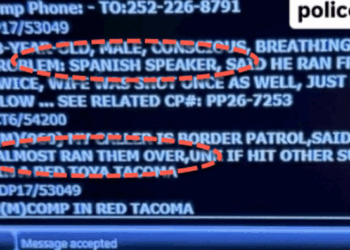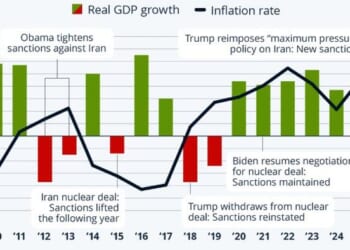Authored by Mollie Engelhart via The Epoch Times,
As a content creator, I’ve noticed something hard to ignore: the posts that get the most engagement are rarely the ones that bring people together. They’re usually the ones that stir people up. The ones that make us mad or pick at our differences. The ones that feed the algorithm.
And yet, part of my job is to keep engagement going. It’s only natural that when a post performs well, I look at it and think, okay, people responded to that. It shapes what I post next—how I talk, what I highlight, even what I believe my “lane” is.
But what happens when the content that performs best doesn’t actually represent who I am?
For example, I write for The Epoch Times, and I know certain topics draw a lot of readers. But does that mean I should only write what gets clicks? Or do I have a responsibility to keep writing what I believe is meaningful, even if it doesn’t blow up online?
Last week, I posted a short video from my ranch. I was standing next to my cows, talking about the decision to import Argentinian beef—and how I didn’t think that was good for American farmers. Normally, my videos reach around 7,000 to 10,000 views. This one hit nearly 80,000, simply because I mentioned President Donald Trump.
And with that came more than 2,000 comments, many of them hateful.
People told me I was stupid, that I “got what I voted for.” They said I was aging poorly or that I looked unhealthy. Some even wished harm on my family.
But here’s what’s interesting: no one has ever said those things to my face.
In real life, people are kind.
We can disagree, but we still treat each other like human beings.
Online, though, the rules change. The algorithm rewards division, and division drives engagement. Engagement drives creators to lean further into whatever keeps people talking. It’s a loop—anger fuels clicks, clicks fuel income, and income rewards outrage.
The problem is, the more we live inside that feedback loop, the more we start to mistake it for real life. We begin to think the world is as cruel and divided as our comment sections. But it’s not. Social media is a curated, artificial experience that has very little to do with reality.
I’ve even run my own little tests to better understand it. When I post about God—about faith, gratitude, or anything that invites peace—the engagement drops dramatically. But when I talk about politics, the numbers skyrocket.
So I can’t help but ask: Are people more devoted to politics than to God? Or is it that the algorithm boosts whatever makes us angry, frustrated, or divided?
Because it really seems like the system is built to reward irritation over inspiration. The algorithm knows that anger spreads faster than peace. If you start to notice, you’ll see the pattern everywhere: content that makes people mad always travels farther. That’s not an accident. The machine is learning exactly what keeps us scrolling—and conflict is its favorite fuel.
But when division becomes profitable, unity starts to disappear. When angry voices get boosted, peaceful ones get buried. And before long, we start believing that the world is angrier than it actually is.
That belief shapes everything—our conversations, our politics, even our sense of safety. It makes us afraid to be honest because nuance doesn’t trend. Kindness doesn’t go viral.
So maybe the real choice we face isn’t just what we consume, but what we create.
As a creator, I can chase engagement or stay true to what I believe matters. I can talk about what gets clicks, or I can speak of truth, even when it doesn’t get rewarded.
Because the truth is, God doesn’t measure engagement.
He measures courage, integrity, and the willingness to keep speaking truth, even when it’s unpopular.
So the next time I post, I’ll ask myself: Am I feeding the algorithm, or am I feeding the soul?
And maybe—just maybe—if enough of us choose the latter, the machine will change. Perhaps it will finally begin to give us what our souls actually long for: unity, love, and God.
Views expressed in this article are opinions of the author and do not necessarily reflect the views of The Epoch Times or ZeroHedge.
Loading recommendations…


















